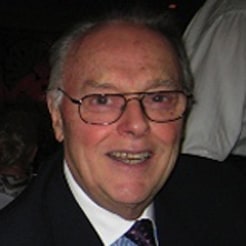
Restoring Management to Front and Center – Mintzberg
Over a half century ago, Peter Drucker put management on the map. Leadership has since pushed it off. But recently, Henry Mintzberg, now 83, the eminent Canadian academic and author on business and management, is publishing again this week. Thomas J. Peters, American writer on business management practices, best known for In Search of Excellence: Lessons from America’s Best-Run Companies (1982), states that Mintzberg is perhaps the “world’s premier management thinker.” The Wall Street Journal has maintained that Mintzberg is certainly “the world’s 9th most influential management thinker.”
For Mintzberg, finding out what managers really do is not the challenge. For him, interpreting it is. Managing, he claims, is important for anyone affected by its practice, which in our world of companies means all of us. We need to understand it more optimally for it to become practiced more optimally. In fact, today, especially coming out of a pandemic, we should become more worried about “micro leading” – people in senior positions who try to manage by remote control disconnected from everything except the “big picture.” Many researchers and practitioners today believe that we are now over led and under managed!
In his stimulatingly classic book Managing (2009), Mintzberg claims that leadership cannot simply delegate management. Instead of distinguishing managers from leaders, we should be seeing managers as leaders and leadership as management practiced well. After years of seeking the Holy Grail, it is time to recognize that managing is neither a science nor a profession; for Mintzberg, it is a practice, learned primarily through experience and rooted in context. For those of us working in companies like ME&A whose focus is primarily on knowledge work, the manager must help bring out the best in his or her coworkers, so that they can know more optimally, decide more optimally, and act more optimally.
Mintzberg tells us that we hear a great deal these days about managers having to become global, but he believes that it is far more important that they become worldly! For him, to become global implies a certain homogeneity, conformity, and subscription to the same set of beliefs, styles, and values. Worldly is defined in the Oxford Dictionary as “experienced in life, sophisticated, practical.” Most managers function on a set of edges between their own world and those of their coworkers and team leaders. To become worldly then, Mintzberg means to get over these edges from time to time into those worlds – other cultures; other companies; other functions in their own company; and, above all, the thinking of others, so as to understand their own world and thus the world their organization operates in more deeply.
So, this week the iconic Henry Mintzberg is releasing his next book Understanding Organizations…Finally! and providing a crystal-clear map to the seven forces that shape all human organizations, synthesizing 60 years of research on organizational design and theory. Human beings, Mintzberg claims, have been organizing to accomplish work for as long as we have existed – so why is organizational behavior still so elusive and mysterious?
In this about-to-be published book, Mintzberg reframes his career’s work around the seven forces that drive all companies. He identifies them as efficiency, proficiency, consolidation, collaboration, culture, division, and conflict. Each of these forces aligns with one of the seven basic organizational forms: the Personal Enterprise, the Programmed Machine, the Professional Assembly, the Project Pioneer, the Divisional Form, the Community Ship, and the Political Arena. Mintzberg explores how these forms combine and hybridize, and offers a life cycle model to explain how companies can transition between the forms and hybrids.
Mintzberg finally says that organizations are formed by a set of relationships, yet their purpose is only achieved through individual work – making the act of organizing a unique science and practice. This thought-provoking book will not only explain why companies are the way they are, but it will show how we can make our individual companies’ function at the highest possible level. I can hardly wait to get my copy this week and be able to study and reflect upon it!
We will see more blogs re Mintzberg in 2023!!!
- About the Author
- Latest Posts
Vice President Emeritus for Learning Technologies Donald Smith, Ed.D, CPT, headed ME&A programs in learning, leadership, and performance enhancement. He stayed with the firm in his retirement, bringing more than 65 years of experience as a coach, designer, facilitator, evaluator, manager, educator, and organizational change architect in more than 40 countries. He is affectionately known as ME&A’s MENCH.



